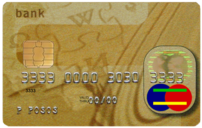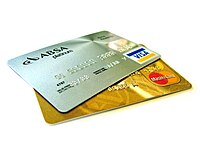
Overview
Are you unsure of how to consolidate your debt and whether debt consolidation is the right approach for you? When you consolidate your debt, you take out a loan to pay off several other debts. This allows you to consolidate the money you owe into one payment and manage your debt more effectively.
Although credit is much harder to come by during these challenging economic times, there are still a number of ways that you can potentially consolidate your debt, such as:
• Credit cards debt consolidation: If you can pay off the balance during the introductory rate period, consolidating your credit cards makes a lot of sense. Make sure to read the fine print carefully before you take any action. Sometimes there are fees associated with the transfer. Also make sure you know when those promotional interest rates end.
• Home equity loans: If you are a homeowner with some equity established in the property, a home equity loan may be the perfect solution for you to consolidate your debt. While they are not as easy to obtain as before, the terms of a home equity loan are very favorable from lenders, with payments that are usually tax deductible. The terms of the line are variable or fixed and can often extend for 30 years. The only clear downside to consolidating your debt in this manner is that your collateral against the loan is the property you own.
• Retirement funds: Considered to be an option of last resort, the interest is rarely tax-deductible, though you are paying interest to yourself instead of the bank. If you are unable to pay it back to the fund within a specified period, you may incur taxes and penalties from the IRS.
• Whole life insurance: If you have a whole life policy that pays an annuity premium to you, you can borrow against its value. You have the option of paying or not paying it back, however if you do not repay the loan, it will be deducted from the total value, thereby of the premium, thereby lessening what those who inherit the value of your policy will receive.
• Credit union: Credit unions generally have lower fees and lower interest rates on loans. It is worthwhile to find out if you can join one.
• Nonprofit consumer credit counseling agency: “What they often will do is, rather than consolidating debt, you pay them a fixed amount and they pay it out to your creditors. It’s a kind of discipline that can be helpful. It’s enforcing a change in spending habits. For the person who is serious about getting out of debt, that’s a solution.”
• Primary lender: In the same way that you might approach your primary lender about a loan modification, you might also consider using the same tactics in this case to renegotiate the terms of your loan so that it is more favorable to you.
Should You Consolidate Debt?
Whether or not you choose to consolidate your debt is a personal decision that specifically depends on your financial situation. Debt consolidation offers many pros and cons:
Pros of Debt Consolidation
Debt consolidation should potentially save you money through lower interest payments and the likelihood of fewer late fees due to the reduction in the number of payments to distinct lenders. Debt consolidation should also help you to rebuild your credit score if you can keep up with the monthly payments due under the revised terms. Debt consolidation should also make it easier for you to organize your finances.
A debt consolidation loan could be helpful if you ran up your credit cards while you were in business school, or if you have a number of high interest student or car installment loans. This will allow you to roll this high interest debt into one manageable payment.
Cons of Debt Consolidation
Debt consolidation is not the right answer in every case. Debt consolidation does not provide a remedy for credit problems. You may have a difficult time finding a fair and reasonable interest rate. If the rate on your new loan is not any better than the rate you pay on your current loans, consolidating your debt would not make much sense.
It can also take longer to pay debts off. When you consolidate debt, you still end up owing the same amount of money. The main difference is usually the length of the term. This could leave you paying more in interest if the term is really long. The best way to combat additional interest payments is to pay down the principal on top of your monthly payments, but doing this may be beyond your means.
You should contact a financial advisor or accountant to evaluate the pros and cons of debt consolidation and whether the option is right for you.



![Reblog this post [with Zemanta]](http://img.zemanta.com/reblog_e.png?x-id=6ec1948b-ca4c-4294-9c08-f7fca5110483)


![Reblog this post [with Zemanta]](http://img.zemanta.com/reblog_e.png?x-id=4769ba07-5ae9-4981-9c35-b1825b559af8)

![Reblog this post [with Zemanta]](http://img.zemanta.com/reblog_e.png?x-id=01ed37d0-2850-45e6-9ab7-f66e0570bd5c)


![Reblog this post [with Zemanta]](http://img.zemanta.com/reblog_e.png?x-id=b1c0889f-a269-46b9-80df-c09b7a6951ca)

![Reblog this post [with Zemanta]](http://img.zemanta.com/reblog_e.png?x-id=40160f4a-3ebe-4046-acda-a05ddba80e31)


![Reblog this post [with Zemanta]](http://img.zemanta.com/reblog_e.png?x-id=87b238f8-a420-491d-b6f3-3fd2099ddf76)
